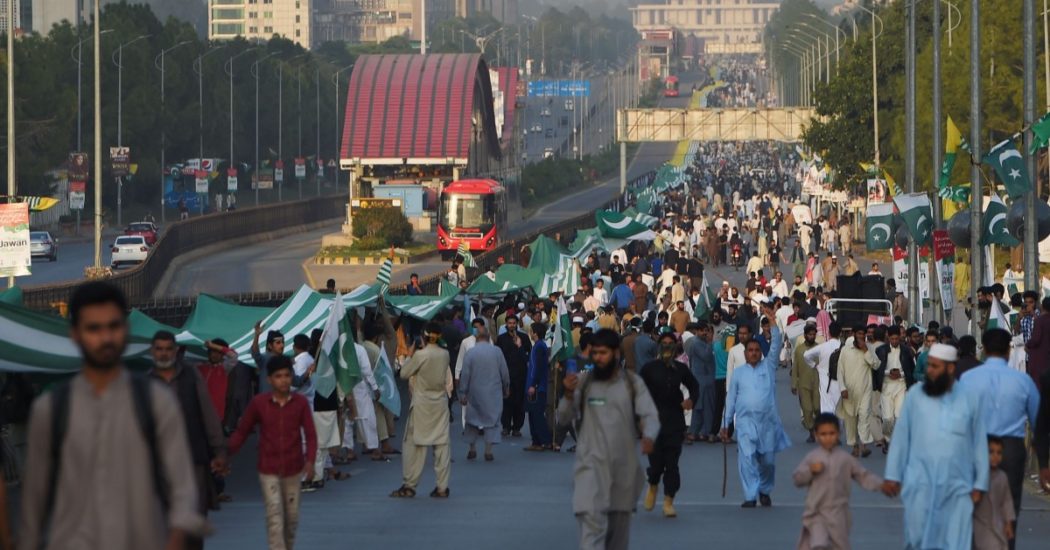
New rules power organizations to surrender their security and avoid informal communities and Wi-Fi in the event that they need their web back. Standard residents still have no entrance, 113 days into an advanced power outage.
Kashmiri Businesses Can Access the Internet Again—yet at a Steep Cost
India has started to reestablish web associations for organizations in Kashmir yet with severe conditions. As per the Wire, which got a duplicate of a bond that in excess of 80 neighborhood organizations have marked up until this point, web is being reestablished just if signatories focus on utilizing it “for business purposes just” and vow to fend off clients from long range informal communication destinations, intermediaries, virtual private systems, and Wi-Fi. The bond bars clients from transferring encoded recordings or photographs and makes organizations answerable for “any sort of rupture or abuse.” It is misty what precisely would establish a break or abuse, which will probably enable specialists to decipher those terms comprehensively. Signatories additionally forgo their entitlement to protection, giving “total access … as and when required by security offices.”
There people have it. One hundred and thirteen days since Aug. 5, when New Delhi moved back the self-sufficiency of the Jammu and Kashmir area subsequent to slicing off access to web there—deadening organizations, trade, training, medicinal services, and regular day to day existence—an incredibly shortened rendition of the web is being given to organizations that are happy to transfer ownership of their opportunities. And keeping in mind that portable and landline administrations have been continuously reestablished, internet providers for people in general stay suspended. At an Indian Supreme Court hearing on Tuesday, the administration safeguarded its bar, calling it “defended to anticipate fear follows up on [the] dull web.”
Open or shut? While the most recent decade has seen an enormous development in the quantity of web clients in India, from 100 million of every 2010 to an expected 600 million this year, an unavoidable issue for the following 10 years is whether the web that Indians will experience will be open or shut. From one viewpoint, India has made significant dynamic proceeds onward web opportunity, not least the way that it has embraced rules ensuring unhindered internet—the rule that keeps internet services from allowing positive access to a specific application or website. The nation’s Supreme Court has likewise decided that security is a “basic right.”
In any case, as Freedom House’s yearly Freedom on the Net report appears, web opportunity has been declining in India: The legislature has proposed rules that would undermine encryption and has captured writers and legislators for their online life posts. The best case of exceed, be that as it may, keeps on being New Delhi’s penchant to close down the web to keep up open request. Supporters of these moves compare closing down the web to the police cordoning off a segment of an interstate in case of a fender bender. In any case, while the sense of ensuring lawfulness is a significant one, there are no governing rules simultaneously. Who gets the chance to choose when the web is closed down? What are the criteria? In the event that shutdowns are abused to smother specific gatherings or networks, how are the specialists considered responsible? How India responds to these inquiries will decide if its web economy will be free and reasonable in the coming years.
As the outline underneath appears, from 2016 to 2018, India shut down the web more than some other nation—by a long shot.
What People’re Following
Rajapaksa-land. Recently chose Sri Lankan President Gotabaya Rajapaksa has sworn in their sibling, previous President Mahinda Rajapaksa, as PM. The siblings have cooperated previously: Gotabaya ran the barrier service under Mahinda somewhere in the range of 2005 and 2015. Two different siblings, Basil and Chamal Rajapaksa, were priest of financial improvement and speaker of parliament, separately. Eyewitnesses dread that the Rajapaksas may take action against the nation’s Muslims, restore ethnonationalism, and damage the nation’s vote based system.
Do the mix. Nepali Prime Minister K.P. Sharma Oli supplanted six individuals from his bureau in an offer to reinforce his position. On Thursday, in what many saw as a blessing to the Maoists, Oli gave the job of official executive of the decision Nepal Communist Party to previous Maoist agitator pioneer Prachanda. The move may support Oli’s remaining in his alliance partnership with the Maoists, with whom he united to win the nation’s last vote in 2017.
All discussion? The Afghan Taliban discharged two scholastics—an American and an Australian, held prisoner for over three years—as a major aspect of a detainee swap for three Taliban administrators. “The Taliban have indicated that the release of the two professors is intended as a goodwill gesture, which the United States welcomes,” U.S. Secretary of State Mike Pompeo said in an announcement, reviving expectations that the swap could resuscitate slowed down harmony talks.
Disclaimer: The views, suggestions, and opinions expressed here are the sole responsibility of the experts. No journalist was involved in the writing and production of this article.

